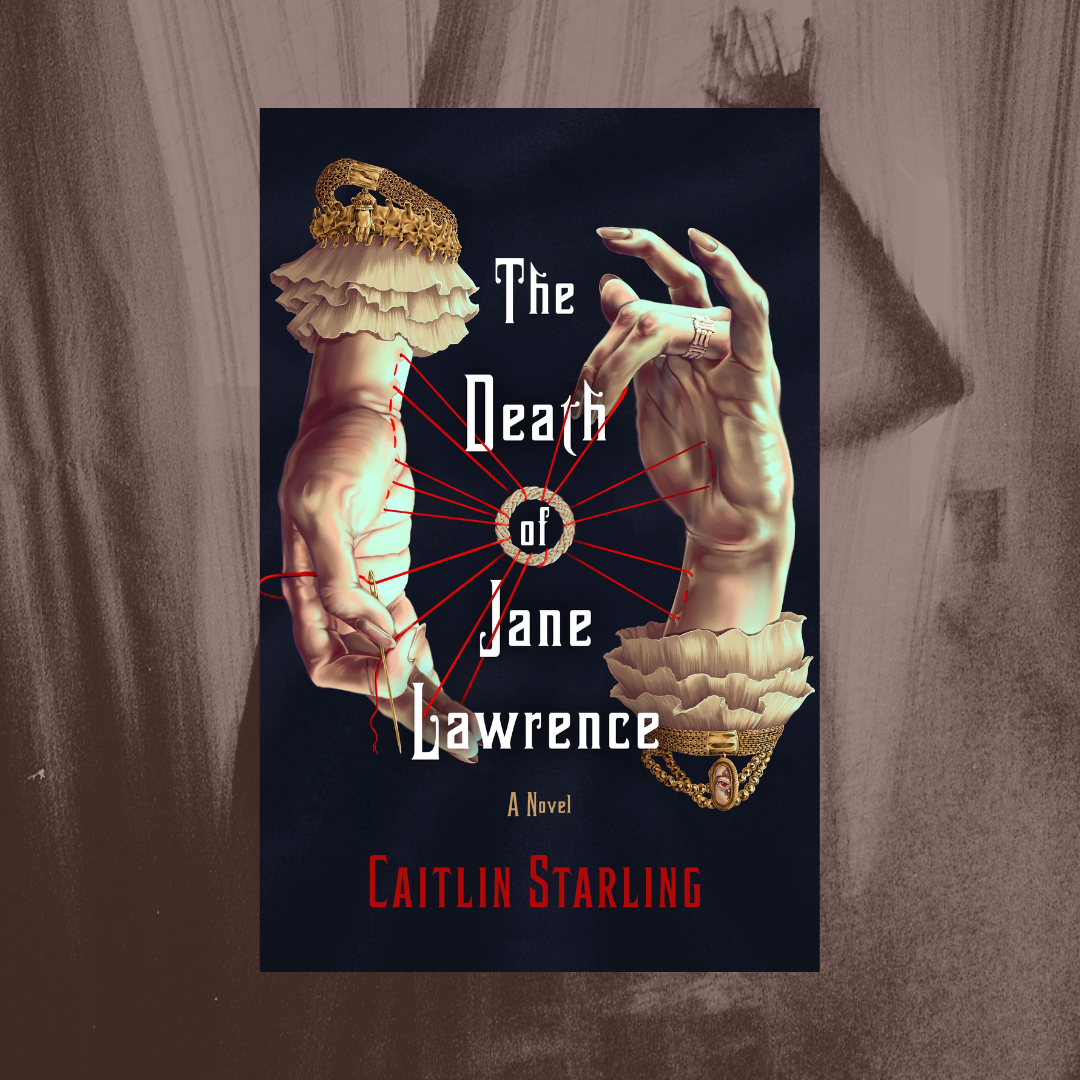Spoiler-Free Review
Happy Halloween, book nerds. If you’re looking for a book that starts as just another spooky gothic read but takes a sharp turn into dark magic and then fully descends into the speculative, consider The Death of Jane Lawrence.
Note: this one leans a little on the body horror side. Click here for specific content warnings.
What’s The Death of Jane Lawrence about?
Jane proposes a marriage of convenience to the local surgeon, whose only rule is that she never join him at his manor. When fate forces her there, she learns the good doctor is hiding some dark secrets.
The second half of this book is not what I was expecting at all.
In the tradition of its forebears, The Death of Jane Lawrence has all the key elements that make gothic horror. It has the mysterious, gaslighting new husband, the decrepit manor, the ghost of a dead wife, and the slow, creeping tension that makes you wonder when everyone is going to snap.
And then it descends into madness.
The first half of the book felt familiar for the genre. But after that, it takes turn after strange turn. Eventually, you look up and realize just how much has changed from page one. Not only is this story audacious in it’s magic and plot, but in my opinion, it makes good on that boldness by being unapologetic about it. Once the story dialed up to ten, it didn’t back down. The first half felt like a standard haunting; the second half felt like diving into the deep end of the occult, superstitions, dark magic, and the supernatural.
Another thing that set this one apart from other books in the genre for me was the main character. She was not the ingenue of stories like Rebecca, or the type easily swayed by paranoia. Jane is logical, through and through. She’s a bookkeeper who loves math. She’s practical and pragmatic, and in the face of unexplainable phenomena, she clings to reasonable answers or seeks them out. And she’s determined to get what she wants. Plus, despite there being a romance, this is her story, and that’s clear by the end.
Thematically, this story explores guilt, death, trust, marriage, and isolation. I thought the hauntings as an exploration of guilt was very interesting, particularly as they related to the doctor, who is weighed down by every patient he’s lost. He is haunted, literally and metaphorically. At the same time, for Jane, the hauntings are more dangerous. This, I think, explores the ways in which implicit dependence on a husband can be dangerous for women who have no way out. Jane becomes mired in the doctor’s mysterious secrets, like a rabbit in a trap.
The ending was just as wild and horrific as the rest of the book.
At times, the magic required felt too easy or too loose, or was hard to grasp. But I could mostly forgive it for that, because it does establish the logic of the magic system and the magic we see sticks to those rules. We did linger a lot on theory and Jane’s picking apart of reality, but if we hadn’t had that, I feel the magic system would have been too convenient.
Should you read The Death of Jane Lawrence?
I want to be clear: this story is built on a gothic horror foundation, but it is ultimately a speculative fantasy with a lot of emphasis on the strange and paranormal.
Already gothic horror is not for everyone given its slower pace. But speculative fantasy is perhaps even more so because of its confusing nature and the sense of not knowing what’s real. If either of those genres are not your cup of tea, skip this one. I’ve seen some lower star ratings for this book, mostly from people for whom confusion or unreliable narrators are intolerable.
But if you love those things, this is absolutely the book for you.
This story takes place in a fantasy world, but is clearly based on post-war Britain. It has a historical vibe. It also has a little bit of romance, and it’s definitely atmospheric. Aspects of the story feel like psychological horror as well, as we spend a lot of time in Jane’s head. It’s a bit gory, too. To me, this was the perfect October read.
I would love to have you around! Subscribe below.
Check out some of my other recent blogs:







